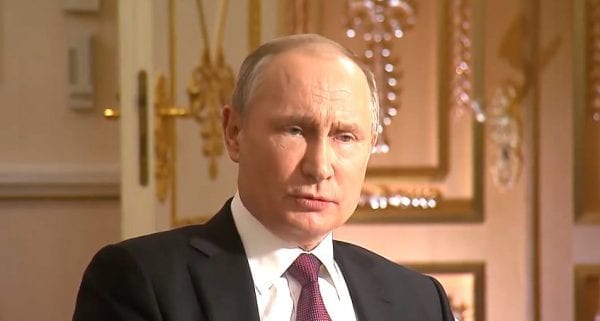Herland Report: Putin’s Radical Reforms: Is Russia shifting to more of a parliamentary system? The recent Putin reforms highlight governmental attempts to combat corruption and elitism, long standing problems in Russia.
Domestically, the country has massive challenges as it is dependent on exports, now with a stagnant economy. The middle class are growing weary of the lack of growth, many highly educated young people emigrate, talk of pension reforms create turmoil.
Russia also suffers from demographic decline, growing ethnic and religious diversity and on its southern borders on the Middle Eastern shores, war.
Some argue that Putin’s fame in the West, gained from his cool realism outlook on world affairs, has made him a Western star, yet problems lurk domestically. Therefore, the constitutional changes outlined in his state of the nation address on January 15th, may signal a shift towards more presidential power to the Parliament.
RFERL Europe writes: Putin said the country’s 1993 constitution should be amended. That included giving the State Duma — the lower chamber — the right to name cabinet ministers and the prime minister, a power that currently belongs to the president.
The presidency, he said, would retain powers including the right to dismiss the prime minister and cabinet ministers, as well as naming top defense and security officials.

The Federation Council — the upper chamber — will be consulted for the president’s nominations for defense minister and other security posts. “This will increase the role and significance of the country’s parliament,” Putin said.
President Vladimir Putin’s Radical Reforms sent Russia’s political elite reeling when he abruptly called for a raft of constitutional changes.
- Manufacturing War with Russia. Chris Hedges.
- Russia Gate Hoax was Attempted Coup from DOJ/FBI, Chris Farrell, Judicial Watch.
- Russia Gate goes down in history as a remarkable display of American stupidity. WND.
- Putin’s Foreign Policy made him a hero: Realism chosen over Idealism.
- Russia’s big Gamble in Libya. Steve Brown.
Hours later, he oversaw the resignation of Prime Minister Dmitry Medvedev and his government — and tapped an obscure tax official to take Medvedev’s place.
On January 20, as Russians and outside observers were trying to make sense of it all, Putin threw another curve ball: He submitted the proposed constitutional amendments to parliament, revealing details that few had expected to be released so quickly.
“Any initiatives put forth by the head of state, of course, are received with great attention,” Kremlin spokesman Dmitry Peskov told reporters a day later.
“The discussion and implementation of these initiatives is always carried out in priority order,” he said. “This is the reality in which we exist, and this is an absolutely understandable and clear reality.”
Peskov’s comments and the lengthy list of proposed amendments notwithstanding, at this point there’s little that is absolutely clear about what exactly the Kremlin is up to as it undertakes the most sweeping rewrite of Russia’s system of governance since 1993, when the constitution was ratified.
So what does it all mean? What’s in the 29-page document that the Kremlin released on January 20? And what does it portend for Putin’s future — and Russia’s?
The constitutional changes of Putin’s Radical Reforms proposed included mention of a government institution that many Russians had never even heard of: the State Council.
Currently, it is an advisory body that he created shortly after he first became president in 2000, vaguely charged with “safeguarding coordinated functioning and cooperation of state organs.”
It is distinct from the Security Council, which is a powerful consultative agency set up by the constitution that oversees Russian national security policies, and whose chairman is the president. Putin now wants to equip the State Council with greater power — but just how much is yet to be determined. Read the full article here.
The level of censorship in social media and search engines is all-time high. Do like thousands of others, subscribe to The Herland Report newsletter here!
Led by Scandinavian bestselling author, Hanne Nabintu Herland, The Herland Report news and opinion website provides independent analysis from leading Western intellectuals and ground breaking YouTube interviews, cutting through the mainstream media rhetoric. It is a great place to watch interviews and read the articles of leading intellectuals, thought leaders, authors and activists from across the political spectrum. The Herland Report believes in freedom of speech and its editorial policy resides above the traditional Left vs Right paradigm which we believe has lost its relevance and ability to describe the current driving forces in Western politics.









